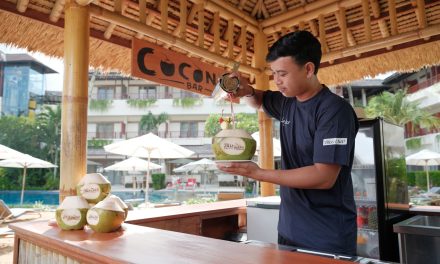If you’re anything like me, food is not just a necessity; it’s an experience. The aroma of fresh herbs, the vibrant colors of vegetables, and the taste of a dish made with love have a way of connecting you to a place and its culture. That’s exactly why I was excited to dive into the world of farm to table cooking classes in Bali. These classes don’t just teach you how to cook; they immerse you in the local environment, culture, and the communal joy of sharing food.
The Allure of Bali’s Fresh Ingredients
Bali is a paradise not only for its stunning beaches and rice terraces but also for its agriculture. On my first morning in Ubud, I woke up to the sounds of roosters crowing, and the fresh scent of coconuts wafting through my window. I could feel the pull of the markets, bursting with colors and flavors, begging me to explore. This was the perfect setting for a cooking class that embraced the philosophy of farm to table.
As I wandered through the Ubud market, I was captivated by the array of fresh produce – from shiny eggplants to fragrant lemongrass. I snapped a photo of a vendor selling vibrant red chili peppers, thinking about how I could include them in my cooking. This was the first moment I realized how central fresh ingredients are to Balinese cuisine.
Finding the Right Cooking Class
I spent some time researching my options for cooking classes that emphasized the farm to table concept. There were plenty to choose from, each with its unique twist. Some offered market tours, while others promised hands-on experiences at their organic farms. After some deliberation, I settled on a class that started with a trip to a local rice terrace and an organic farm—this was essential for someone like me who wanted to connect with the source of their ingredients.
A Personal Anecdote
During the class, the instructor, a bubbly Balinese woman named Nyoman, had a deep passion for cooking that was contagious. She took us around the farm to pick fresh basil, mint, and tomatoes, and we even harvested some young coconuts. I remember cracking one open and sipping the water straight from it; it tasted like heaven!
It was a hot day, and my hands were sticky with coconut flesh and fresh herbs. But as Nyoman guided us, she shared stories about her grandmother, who taught her how to cook using only the freshest ingredients. I found myself enthralled by her anecdotes, realizing that each dish we were about to create was not just food—it was a piece of history and culture.
The Cooking Experience
Back in the kitchen, surrounded by other participants—some locals looking to refine their skills, and others like me, eager tourists—we donned our aprons and got to work. We learned to prepare classic Balinese dishes such as *nasi goreng*, *sate lilit* (Balinese satay), and a delightful coconut flan for dessert.
Here’s a practical tip: if you ever find yourself in a similar situation, don’t hesitate to ask questions! Nyoman encouraged us to personalize our dishes, and I decided to add an extra kick of chilies to mine. Watching people’s faces light up as they tasted my creation was incredibly rewarding.
The Joy of Community
What struck me most was the communal spirit of the class. As we cooked together, laughter filled the air, and stories flowed freely. We shared our backgrounds, our cuisines, and our lives—the experience was as much about building connections as it was about cooking. We sat down at the large wooden table, and as we enjoyed the fruits of our labor, it felt like we were a family, sharing a meal prepared with love and care.
The Takeaway
Participating in farm to table cooking classes in Bali is not simply about learning how to cook; it’s about embracing a holistic experience that connects you to the land, the people, and traditions of Balinese culture.
If you’re planning to join a class, here are some tips to make the most of your experience:
1. Begin with a Market Tour: Look for classes that start with a market tour. It sets the stage for what you’ll be cooking and allows you to connect personally with the ingredients.
2. Engage with the Instructors: Don’t shy away from asking questions about techniques, cultural practices, or ingredient substitutions. Your instructors are often eager to share their knowledge.
3. Be Open to New Flavors: If you’re someone who usually sticks to familiar dishes, let yourself explore the unique flavors of Balinese cuisine. You might just discover your new favorite dish!
4. Bring a Camera: Capture the beauty of the ingredients, the cooking process, and the final presentation. These are memories you’ll want to cherish!
5. Savor the Experience: Remember, cooking is as much about the journey as it is about the destination. Take the time to enjoy the process and the people around you.
Conclusion
As I left Bali, my suitcase packed with spices and fresh ingredients, I realized that the true essence of farm to table cooking classes lies in the connections formed—from the land to the people and, ultimately, to each other. These classes aren’t just about cooking; they’re about understanding the depth of Balinese culture through its food.So, if you find yourself in Bali, I wholeheartedly recommend diving into a farm to table cooking class. It’s an enriching experience that goes beyond the kitchen, offering a taste of Bali that you’ll carry with you long after the trip is over. Happy cooking!






